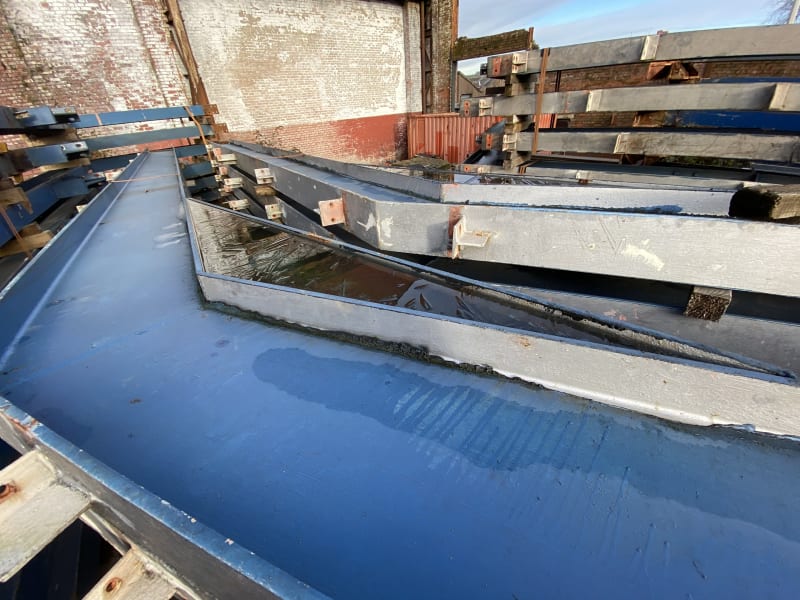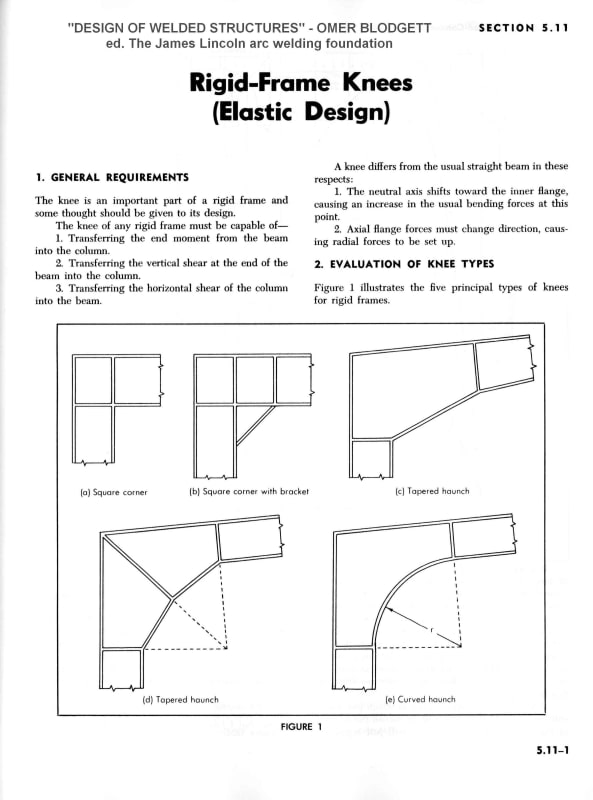Hi all,
Hopefully someone can help me (or confirm what I already think i know). I am running an assessment on an existing steel portal which has been taken down and is being erected in a new location. The apex and the eaves, rather than being bolted, are welded like the image below - there is a small haunch on the apex and nothing on the eaves. There is then a splice about 2.5m away from the eaves on each side, so the frame is in 3 pieces, 2 Cols with a 2.5m long 'stub' rafter and a pair of welded rafters. Hope that all makes sense.
Now if I assume the connection welds are full strength butt welds then great, I know that I can achieve the full section strength in bending. But i still need to consider local effects like column web crushing/bearing etc due to the crank won't I? I have only ever run these connections in software as bolted, so want to make sure before i have to dive into the books to look up all the checks!
EDIT: perhaps i wasn't clear on something - the eaves is not a rafter to column flange weld - both sections are cut to the angle and welded all round. So the TF of the rafter is welded to the outside flange of the column, BF of rafter to the inside flange of the column, and web to web. Like the apex but on a more severe angle (its 17 degree pitch).

Hopefully someone can help me (or confirm what I already think i know). I am running an assessment on an existing steel portal which has been taken down and is being erected in a new location. The apex and the eaves, rather than being bolted, are welded like the image below - there is a small haunch on the apex and nothing on the eaves. There is then a splice about 2.5m away from the eaves on each side, so the frame is in 3 pieces, 2 Cols with a 2.5m long 'stub' rafter and a pair of welded rafters. Hope that all makes sense.
Now if I assume the connection welds are full strength butt welds then great, I know that I can achieve the full section strength in bending. But i still need to consider local effects like column web crushing/bearing etc due to the crank won't I? I have only ever run these connections in software as bolted, so want to make sure before i have to dive into the books to look up all the checks!
EDIT: perhaps i wasn't clear on something - the eaves is not a rafter to column flange weld - both sections are cut to the angle and welded all round. So the TF of the rafter is welded to the outside flange of the column, BF of rafter to the inside flange of the column, and web to web. Like the apex but on a more severe angle (its 17 degree pitch).



![[thumbsup] [thumbsup] [thumbsup]](/data/assets/smilies/thumbsup.gif) .....
.....